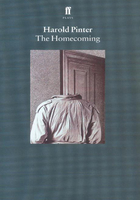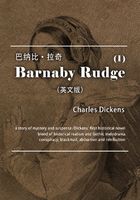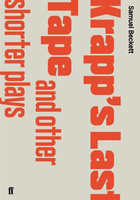It appeared as if Mrs. Gibson's predictions were likely to be verified; for Osborne Hamley found his way to her drawing-room pretty frequently. To be sure, sometimes prophets can help on the fulfilment of their own prophecies; and Mrs. Gibson was not passive.
Molly was altogether puzzled by his manners and ways. He spoke of occasional absences from the Hall, without exactly saying where he had been. But that was not her idea of the conduct of a married man, who, she imagined, ought to have a house and servants, and pay rent and taxes, and live with his wife. Who this mysterious wife might be, faded into insignificance before the wonder of where she was. London, Cambridge, Dover, nay even France, were mentioned by him as places to which he had been on these different little journeys. These facts came out quite casually, almost as if he was unaware of what he was betraying; sometimes he dropped out such sentences as these:—'Ah, that would be the day I was crossing! It was stormy, indeed! Instead of our being only two hours, we were nearly five.' Or, 'I met Lord Hollingford at Dover last week, and he said,' &c. 'The cold now is nothing to what it was in London on Thursday—the thermometer was down at 15 degrees.' Perhaps, in the rapid flow of conversation, these small revelations were noticed by no one but Molly; whose interest and curiosity were always hovering over the secret she had become possessed of, in spite of all her self-reproach for allowing her thoughts to dwell on what was still to be kept as a mystery.
It was also evident to her that Osborne was not too happy at home. He had lost the slight touch of cynicism which he had affected when he was expected to do wonders at college; and that was one good result of his failure. If he did not give himself the trouble of appreciating other people, and their performances, at any rate his conversation was not so amply sprinkled with critical pepper. He was more absent, not so agreeable, Mrs. Gibson thought, but did not say. He looked ill in health; but that might be the consequence of the real depression of spirits which Molly occasionally saw peeping out through all his pleasant surface-talk. Now and then, he referred to 'the happy days that are gone,' or, 'to the time when my mother was alive,' when talking directly to her; and then his voice sank, and a gloom came over his countenance, and Molly longed to express her own deep sympathy. He did not often mention his father; and Molly thought she could read in his manner, when he did, that something of the painful restraint she had noticed when she was last at the Hall still existed between them. Nearly all that she knew of the family interior she had heard from Mrs. Hamley, and she was uncertain as to how far her father was acquainted with them; so she did not like to question him too closely; nor was he a man to be so questioned as to the domestic affairs of his patients. Sometimes she wondered if it was a dream—that short half hour in the library at Hamley Hall—when she had learnt a fact which seemed so all-important to Osborne, yet which made so little difference in his way of life—either in speech or action. During the twelve or fourteen hours or so that she had remained at the Hall afterwards, no further allusion had been made to his marriage, either by himself or by Roger. It was, indeed, very like a dream. Probably Molly would have been rendered much more uncomfortable in the possession of her secret if Osborne had struck her as particularly attentive in his devotion to Cynthia. She evidently amused and attracted him, but not in any lively or passionate kind of manner. He admired her beauty, and seemed to feel her charm; but he would leave her side, and come to sit near Molly, if anything reminded him of his mother, about which he could talk to her, and to her alone. Yet he came so often to the Gibsons', that Mrs. Gibson might be excused for the fancy she had taken into her head, that it was for Cynthia's sake. He liked the lounge, the friendliness, the company of two intelligent girls of beauty and manners above the average; one of whom stood in a peculiar relation to him, as having been especially beloved by the mother whose memory he cherished so fondly. Knowing himself to be out of the category of bachelors, he was, perhaps, too indifferent as to other people's ignorance, and its possible consequences.
Somehow, Molly did not like to be the first to introduce Roger's name into the conversation, so she lost many an opportunity of hearing intelligence about him. Osborne was often so languid or so absent that he only followed the lead of talk; and as an awkward fellow, who had paid her no particular attention, and as a second son, Roger was not pre-eminent in Mrs. Gibson's thoughts; Cynthia had never seen him, and the freak did not take her often to speak about him. He had not come home since he had obtained his high place in the mathematical lists: that Molly knew; and she knew, too, that he was working hard for something—she supposed a fellowship—and that was all. Osborne's tone in speaking of him was always the same: every word, every inflexion of the voice breathed out affection and respect—nay, even admiration! And this from the nil admirari brother, who seldom carried his exertions so far.
'Ah, Roger!' he said one day. Molly caught the name in an instant, though she had not heard what had gone before. 'He is a fellow in a thousand—in a thousand, indeed! I don't believe there is his match anywhere for goodness and real solid power combined.'
'Molly,' said Cynthia, after Mr. Osborne Hamley had gone, 'what sort of a man is this Roger Hamley? One can't tell how much to believe of his brother's praises; for it is the one subject on which Osborne Hamley becomes enthusiastic. I've noticed it once or twice before.'
While Molly hesitated on which point of the large round to begin her description, Mrs. Gibson struck in,—
'It just shows what a sweet disposition Osborne Hamley is of—that he should praise his brother as he does. I daresay he is senior wrangler, and much good may it do him! I don't deny that; but as for conversation, he's as heavy as heavy can be. A great awkward fellow to boot, who looks as if he did not know two and two made four, for all he is such a mathematical genius. You would hardly believe he was Osborne Hamley's brother to see him! I should not think he had a profile at all.'
'What do you think of him, Molly?' said the persevering Cynthia.
'I like him,' said Molly. 'He has been very kind to me. I know he isn't handsome like Osborne.'
It was rather difficult to say all this quietly, but Molly managed to do it, quite aware that Cynthia would not rest till she had extracted some kind of an opinion out of her.
'I suppose he will come home at Easter,' said Cynthia, 'and then I shall see him for myself.'
'It's a great pity that their being in mourning will prevent their going to the Easter charity ball,' said Mrs. Gibson, plaintively. 'I shan't like to take you two girls, if you are not to have any partners. It will put me in such an awkward position. I wish we could join on to the Towers party. That would secure you partners, for they always bring a number of dancing men, who might dance with you after they had done their duty by the ladies of the house. But really everything is so changed since dear Lady Cumnor has been an invalid that perhaps they won't go at all.'
This Easter ball was a great subject of conversation with Mrs Gibson. She sometimes spoke of it as her first appearance in society as a bride, though she had been visiting once or twice a week all winter long. Then she shifted her ground, and said she felt so much interest in it, because she would then have the responsibility of introducing both her own and Mr. Gibson's daughter to public notice, though the fact was that pretty nearly every one who was going to this ball had seen the two young ladies—though not their ball dresses—before. But, aping the manners of the aristocracy as far as she knew them, she intended to 'bring out' Molly and Cynthia on this occasion, which she regarded in something of the light of a presentation at Court. 'They are not out yet,' was her favourite excuse when either of them was invited to any house to which she did not wish them to go, or invited without her. She even made a difficulty about their 'not being out' when Miss Browning—that old friend of the Gibson family—came in one morning to ask the two girls to come to a very friendly tea and a round game afterwards; this mild piece of gaiety being designed as an attention to three of Mrs. Goodenough's grandchildren—two young ladies and their school-boy brother—who were staying on a visit to their grandmamma.
'You are very kind, Miss Browning, but you see I hardly like to let them go—they are not out, you know, till after the Easter ball.'
'Till when we are invisible,' said Cynthia, always ready with her mockery to exaggerate any pretension of her mother's. 'We are so high in rank that our sovereign must give us her sanction before we can play a round game at your house.'
Cynthia enjoyed the idea of her own full-grown size and stately gait, as contrasted with that of a meek, half-fledged girl in the nursery; but Miss Browning was half puzzled and half affronted.
'I don't understand it at all. In my days girls went wherever it pleased people to ask them, without this farce of bursting out in all their new fine clothes at some public place. I don't mean but what the gentry took their daughters to York, or Matlock, or Bath to give them a taste of gay society when they were growing up; and the quality went up to London, and their young ladies were presented to Queen Charlotte, and went to a birthday ball, perhaps. But for us little Hollingford people, why we knew every child amongst us from the day of its birth; and many a girl of twelve or fourteen have I seen go out to a card- party, and sit quiet at her work, and know how to behave as well as any lady there. There was no talk of "coming out" in those days for any one under the daughter of a squire.'
'After Easter, Molly and I shall know how to behave at a card-party, but not before,' said Cynthia, demurely.
'You're always fond of your quips and your cranks,' my dear,' said Miss Browning, 'and I wouldn't quite answer for your behaviour: you sometimes let your spirits carry you away. But I'm quite sure Molly will be a little lady as she always is, and always was, and I have known her from a babe.'
Mrs. Gibson took up arms on behalf of her own daughter, or rather, she took up arms against Molly's praises.
'I don't think you would have called Molly a lady the other day, Miss Browning, if you had found her where I did: sitting up in a cherry- tree, six feet from the ground at least, I do assure you.'
'Oh! but that wasn't pretty,' said Miss Browning, shaking her head at Molly. 'I thought you'd left off those tomboy ways.'
'She wants the refinement which good society gives in several ways', said Mrs. Gibson, returning to the attack on poor Molly. 'She's very apt to come upstairs two steps at a time.'
'Only two, Molly!' said Cynthia. 'Why, to-day I found I could manage four of these broad shallow steps.'
'My dear child, what are you saying?'
'Only confessing that I, like Molly, want the refinements which good society gives; therefore, please do let us go to Miss Brownings' this evening. I will pledge myself for Molly that she shan't sit in a cherry-tree; and Molly shall see that I don't go upstairs in an unladylike way. I will go upstairs as meekly as if I were a come-out young lady, and had been to the Easter ball.'
So it was agreed that they should go. If Mr. Osborne Hamley had been named as one of the probable visitors, there would have been none of this difficulty about the affair.
But though he was not there his brother Roger was. Molly saw him in a minute when she entered the little drawing-room; but Cynthia did not.
'And see, my dears,' said Miss Phoebe Browning, turning them round to the side where Roger stood waiting for his turn of speaking to Molly. 'We've got a gentleman for you after all! Wasn't it fortunate?—just as sister said that you might find it dull—you, Cynthia, she meant, because you know you come from France; and then, just as if he had been sent from heaven, Mr. Roger came in to call; and I won't say we laid violent hands on him, because he was too good for that; but really we should have been near it, if he had not stayed of his own accord.'
The moment Roger had done his cordial greeting to Molly, he asked her to introduce him to Cynthia.
'I want to know her—your new sister,' he added, with the kind smile Molly remembered so well since the very first day she had seen it directed towards her, as she sate crying under the weeping ash. Cynthia was standing a little behind Molly when Roger asked for this introduction. She was generally dressed with careless grace. Molly, who was delicate neatness itself, used sometimes to wonder how Cynthia's tumbled gowns, tossed away so untidily, had the art of looking so well and falling in such graceful folds. For instance, the pale lilac muslin gown she wore this evening had been worn many times before, and had looked unfit to wear again until Cynthia put it on. Then the limpness became softness, and the very creases took the lines of beauty. Molly, in a daintily clean pink muslin, did not look half so elegantly dressed as Cynthia. The grave eyes that the latter raised when she had to be presented to Roger had a sort of child-like innocence and wonder about them, which did not quite belong to Cynthia's character. She put on her armour of magic that evening—involuntarily as she always did; but, on the other side, she could not help trying her power on strangers. Molly had always felt that she should have a right to a good long talk with Roger when she next saw him; and that he would tell her, or she should gather from him, all the details she so longed to hear about the squire—about the Hall—about Osborne—about himself. He was just as cordial and friendly as ever with her. If Cynthia had not been there all would have gone on as she had anticipated; but of all the victims to Cynthia's charms he fell most prone and abject. Molly saw it all, as she was sitting next to Miss Phoebe at the tea-table, acting right- hand, and passing cake, cream, sugar, with such busy assiduity that every one besides herself thought that her mind, as well as her hands, was fully occupied. She tried to talk to the two shy girls, as in virtue of her two years' seniority she thought herself bound to do; and the consequence was, she went upstairs with the twain clinging to her arms, and willing to swear an eternal friendship. Nothing would satisfy them but that she must sit between them at vingt-un; and they were so desirous of her advice in the important point of fixing the price of the counters that she could not even have joined in in the animated tete-a-tete going on between Roger and Cynthia. Or rather, it would be more correct to say that Roger was talking in a most animated manner to Cynthia, whose sweet eyes were fixed upon his face with a look of great interest in all he was saying, while it was only now and then she made her low replies. Molly caught a few words occasionally in intervals of business.
'At my uncle's, we always gave a silver threepence for three dozen. You know what a silver threepence is, don't you, dear Miss Gibson?'
'The three classes are published in the Senate House at nine o'clock on the Friday morning, and you can't imagine—'
'I think it will be thought rather shabby to play at anything less than sixpence. That gentleman' (this in a whisper) 'is at Cambridge, and you know they always play very high there, and sometimes ruin themselves, don't they, dear Miss Gibson?'
'Oh, on this occasion the Master of Arts who precedes the candidates for honours when they go into the Senate House is called the Father of the College to which he belongs. I think I mentioned that before, didn't I?'
So Cynthia was hearing all about Cambridge, and the very examination about which Molly had felt such keen interest, without having ever been able to have her questions answered by a competent person; and Roger, to whom she had always looked as the final and most satisfactory answerer, was telling all she wanted to know, and she could not listen. It took all her patience to make up little packets of counters, and settle, as the arbiter of the game, whether it would be better for the round or the oblong counters to be reckoned as six. And when all was done, and every one sate in their places round the table, Roger and Cynthia had to be called twice before they came. They stood up, it is true, at the first sound of their names; but they did not move: Roger went on talking, Cynthia listening, till the second call—when they hurried to the table and tried to appear all on a sudden quite interested in the great questions of the game, namely, the price of three dozen counters, and whether, all things considered, it would be better to call the round counters or the oblong half-a-dozen each. Miss Browning, drumming the pack of cards on the table, and quite ready to begin dealing, decided the matter by saying, 'Rounds are sixes, and three dozen counters cost sixpence. Pay up, if you please, and let us begin at once.' Cynthia sate between Roger and William Osborne, the young schoolboy, who bitterly resented on this occasion his sisters' habit of calling him 'Willie,' as he thought that it was this boyish sobriquet which prevented Cynthia from attending as much to him as to Mr. Roger Hamley; he also was charmed by the charmer, who found leisure to give him one or two of her sweet smiles. On his return home to his grandmamma's he gave out one or two very decided and rather original opinions, quite opposed—as was natural—to his sisters'. One was,—
'That, after all, a senior wrangler was no great shakes. Any man might be one if he liked, but there were a lot of fellows that he knew who would be very sorry to go in for anything so slow.'
Molly thought the game would never end. She had no particular turn for gambling in her; and whatever her card might be, she regularly put on two counters, indifferent as to whether she won or lost. Cynthia, on the contrary, staked high, and was at one time very rich, but ended by being in debt to Molly something like six shillings. She had forgotten her purse, she said, and was obliged to borrow from the more provident Molly, who was aware that the round game of which Miss Browning had spoken to her was likely to require money. If it was not a very merry affair for all the individuals concerned, it was a very noisy one on the whole. Molly thought it was going to last till midnight; but punctually as the clock struck nine, the little maid-servant staggered in under the weight of a tray loaded with sandwiches, cakes, and jelly. This brought on a general move; and Roger, who appeared to have been on the watch for something of the kind, came and took a chair by Molly.
'I am so glad to see you again—it seems such a long time since Christmas,' said he, dropping his voice, and not alluding more exactly to the day when she had left the Hall.
'It is a long time,' she replied; 'we are close to Easter now. I have so wanted to tell you how glad I was to hear about your honours at Cambridge. I once thought of sending you a message through your brother, but then I thought it might be making too much fuss, because I know nothing of mathematics, or of the value of a senior-wranglership; and you were sure to have so many congratulations from people who did know.'
'I missed yours though, Molly,' said he, kindly. 'But I felt sure you were glad for me.'
'Glad and proud too,' said she. 'I should so like to hear something more about it. I heard you telling Cynthia—'
'Yes. What a charming person she is! I should think you must be happier than we expected long ago.'
'But tell me something about the senior-wranglership, please,' said Molly.
'It's a long story, and I ought to be helping the Miss Brownings to hand sandwiches—besides, you wouldn't find it very interesting, it's so full of technical details.'
'Cynthia looked very much interested,' said Molly.
'Well! then I refer you to her, for I must go now. I can't for shame go on sitting here, and letting those good ladies have all the trouble. But I shall come and call on Mrs. Gibson soon. Are you walking home to- night?'
'Yes, I think so,' replied Molly, eagerly foreseeing what was to come.
'Then I shall walk home with you. I left my horse at the "George," and that's half-way. I suppose old Betty will allow me to accompany you and your sister? You used to describe her as something of a dragon.'
'Betty has left us,' said Molly, sadly. 'She's gone to live at a place at Ashcombe.'
He made a face of dismay, and then went off to his duties. The short conversation had been very pleasant, and his manner had had just the brotherly kindness of old times; but it was not quite the manner he had to Cynthia; and Molly half thought she would have preferred the latter. He was now hovering about Cynthia, who had declined the offer of refreshments from Willie Osborne. Roger was tempting her, and with playful entreaties urging her to take something from him. Every word they said could be heard by the whole room; yet every word was said, on Roger's part at least, as if he could not have spoken it in that peculiar manner to any one else. At length, and rather more because she was weary of being entreated, than because it was his wish, Cynthia took a macaroon, and Roger seemed as happy as though she had crowned him with flowers. The whole affair was as trifling and commonplace as could be in itself hardly worth noticing: and yet Molly did notice it, and felt uneasy; she could not tell why. As it turned out, it was a rainy night, and Mrs. Gibson sent a fly for the two girls instead of old Betty's substitute. Both Cynthia and Molly thought of the possibility of their taking the two Osborne girls back to their grandmother's, and so saving them a wet walk; but Cynthia got the start in speaking about it; and the thanks and the implied praise for thoughtfulness were hers.
When they got home Mr. and Mrs. Gibson were sitting in the drawing- room, quite ready to be amused by any details of the evening.
Cynthia began,—
'Oh! it wasn't very entertaining. One didn't expect that,' and she yawned wearily.
'Who were there?' asked Mr. Gibson. 'Quite a young party—wasn't it?'
'They'd only asked Lizzie and Fanny Osborne, and their brother; but Mr. Roger Hamley had ridden over and called on the Miss Brownings, and they had kept him to tea. No one else.'
'Roger Hamley there!' said Mr. Gibson. 'He's come home then. I must make time to ride over and see him.'
'You'd much better ask him here,' said Mrs. Gibson. 'Suppose you invite him and his brother to dine here on Friday, my dear? It would be a very pretty attention, I think.'
'My dear! these young Cambridge men have a very good taste in wine, and don't spare it. My cellar won't stand many of their attacks.'
'I didn't think you were so inhospitable, Mr. Gibson.'
'I'm not inhospitable, I'm sure. If you'll put "bitter beer" in the corner of your notes of invitation, just as the smart people put "quadrilles" as a sign of entertainment offered, we'll have Osborne and Roger to dinner any day you like. And what did you think of my favourite, Cynthia? You hadn't seen him before, I think?'
'Oh! he's nothing like so handsome as his brother; nor so polished; nor so easy to talk to. He entertained me for more than an hour with a long account of some examination or other; but there's something one likes about him.'
'Well—and Molly—' said Mrs. Gibson, who piqued herself on being an impartial stepmother; and who always tried hard to make Molly talk as much as Cynthia—'what sort of an evening have you had?'
'Very pleasant, thank you.' Her heart a little belied her as she said this. She had not cared for the round game; and she would have cared for Roger's conversation. She had had what she was indifferent to, and not had what she would have liked.
'We've had our unexpected visitor, too,' said Mr. Gibson. 'Just after dinner who should come in but Mr. Preston. I fancy he's having more of the management of the Hollingford property than formerly. Sheepshanks is getting an old man. And if so, I suspect we shall see a good deal of Preston. He's "no blate," as they used to say in Scotland, and made himself quite at home to-night. If I'd asked him to stay, or, indeed, if I'd done anything but yawn, he'd have been here now. But I defy any man to stay when I have a fit of yawning.'
'Do you like Mr. Preston, papa?' asked Molly.
'About as much as I do half the men I meet. He talks well, and has seen a good deal. I know very little of him, though, except that he's my lord's steward, which is a guarantee for a good deal.'
'Lady Harriet spoke pretty strongly against him that day I was with her at the Manor-house.'
'Lady Harriet's always full of fancies: she likes persons to-day, and dislikes them to-morrow,' said Mrs. Gibson, who was touched on her sore point whenever Molly quoted Lady Harriet, or said anything to imply ever so transitory an intimacy with her.
'You must know a good deal about Mr. Preston, my dear? I suppose you saw a good deal of him at Ashcombe?'
Mrs. Gibson coloured, and looked at Cynthia before she replied. Cynthia's face was set into a determination not to speak, however much she might be referred to.
'Yes; we saw a good deal of him—at one time, I mean. He's changeable, I think. But he always sent us game, and sometimes fruit. There were some stories against him, but I never believed them.'
'What kind of stories?' said Mr. Gibson, quickly.
'Oh, vague stories, you know: scandal, I daresay. No one ever believed them. He could be so agreeable if he chose; and my lord, who is so very particular, would never have kept him as agent if they were true; not that I ever knew what they were, for I consider all scandal as abominable gossip.'
'I'm very glad I yawned in his face,' said Mr. Gibson. 'I hope he'll take the hint.'
'If it was one of your giant-gapes, papa, I should call it more than a hint,' said Molly. 'And if you want a yawning chorus the next time he comes, I'll join in; won't you, Cynthia?'
'I don't know,' replied the latter, shortly, as she lighted her bed- candle. The two girls had usually some nightly conversation in one or other of their bed-rooms; but to-night Cynthia said something or other about being terribly tired, and hastily shut her door.
The very next day, Roger came to pay his promised call. Molly was out in the garden with Williams, planning the arrangement of some new flower-beds, and deep in her employment of placing pegs upon the lawn to mark out the different situations, when, standing up to mark the effect, her eye was caught by the figure of a gentleman, sitting with his back to the light, leaning forwards, and talking, or listening, eagerly. Molly knew the shape of the head perfectly, and hastily began to put off her brown-holland gardening apron, emptying the pockets as she spoke to Williams.
'You can finish it now, I think,' said she. 'You know about the bright- coloured flowers being against the privet-hedge, and where the new rose-bed it to be?'
'I can't justly say as I do,' said he. 'Mebbe, you'll just go o'er it all once again, Miss Molly. I'm not so young as I oncst was, and my head is not so clear now-a-days, and I'd be loth to make mistakes when you're so set upon your plans.'
Molly gave up her impulse in a moment. She saw that the old gardener was really perplexed, yet that he was as anxious as he could be to do his best. So she went over the ground again, pegging and explaining till the wrinkled brow was smooth again, and he kept saying, 'I see, miss. All right, Miss Molly, I'se gotten it in my head as clear as patch-work now.'
So she could leave him, and go in. But just as she was close to the garden door, Roger came out. It really was for once a case of virtue its own reward, for it was far pleasanter to her to have him in a tete- a-tete, however short, than in the restraint of Mrs. Gibson's and Cynthia's presence.
'I only just found out where you were, Molly. Mrs. Gibson said you had gone out, but she didn't know where; and it was the greatest chance that I turned round and saw you.'
'I saw you some time ago, but I couldn't leave Williams. I think he was unusually slow to-day; and he seemed as if he couldn't understand my plan for the new flower-beds.'
'Is that the paper you've got in your hand? Let me look at it, will you? Ah, I see! you've borrowed some of your ideas from our garden at home, haven't you? This bed of scarlet geraniums, with the border of young oaks, pegged down! That was a fancy of my dear mother's.'
They were both silent for a minute or two. Then Molly said,—
'How is the squire? I've never seen him since.'
'No, he told me how much he wanted to see you, but he couldn't make up his mind to come and call. I suppose it would never do now for you to come and stay at the Hall, would it? It would give my father so much pleasure: he looks upon you as a daughter, and I'm sure both Osborne and I shall always consider you are like a sister to us, after all my mother's love for you, and your tender care of her at last. But I suppose it wouldn't do.'
'No! certainly not,' said Molly, hastily.
'I fancy if you could come it would put us a little to rights. You know, as I think I once told you, Osborne has behaved differently to what I should have done, though not wrongly,—only what I call an error of judgment. But my father, I'm sure, has taken up some notion of— never mind; only the end of it is that he holds Osborne still in tacit disgrace, and is miserable himself all the time. Osborne, too, is sore and unhappy, and estranged from my father. It is just what my mother would have put right very soon, and perhaps you could have done it— unconsciously, I mean—for this wretched mystery that Osborne preserves about his affairs is at the root of it all. But there's no use talking about it; I don't know why I began.' Then, with a wrench, changing the subject, while Molly still thought of what he had been telling her, he broke out,—'I can't tell you how much I like Miss Kirkpatrick, Molly. It must be a great pleasure to you having such a companion!'
'Yes,' said Molly, half smiling. 'I'm very fond of her; and I think I like her better every day I know her. But how quickly you have found out her virtues!'
'I didn't say "virtues," did I?' asked he, reddening, but putting the question in all good faith. 'Yet I don't think one could be deceived in that face. And Mrs. Gibson appears to be a very friendly person,—she has asked Osborne and me to dine here on Friday.'
'Bitter beer' came into Molly's mind; but what she said was, 'And are you coming?'
'Certainly, I am, unless my father wants me; and I've given Mrs Gibson a conditional promise for Osborne too. So I shall see you all very soon again. But I must go now. I have to keep an appointment seven miles from here in half an hour's time. Good luck to your flower-garden, Molly.'














